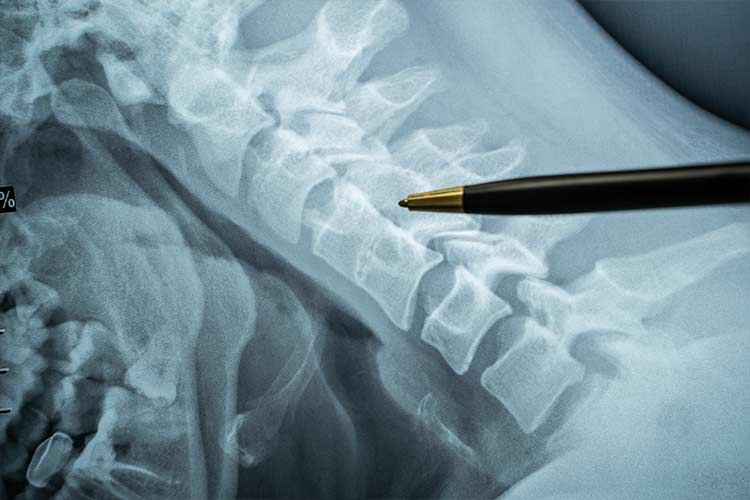Join Our eNewsletter!
Subscribe to our monthly newsletter to receive encouraging advice to help you lead a healthy lifestyle.

Living With and Managing Chronic Pain
Pain is an unpleasant signal that something is wrong with our bodies. It can be mild, excoriating, and described as burning, stabbing, aching, squeezing, stinging, or throbbing.
Sometimes pain can be short term and relieved with medication and rest, which is known as acute pain. An example of acute pain is a broken bone or cut. While it hurts initially, you eventually heal, and your pain disappears.
However, when you have pain that persists for three to six months, it’s known as chronic pain. It has the potential to become debilitating and interfere with many aspects of your daily life – both at home and at work. Underlying health conditions like arthritis or fibromyalgia (muscle pain all over) or an injury sustained in a car accident can result in chronic pain. Cancer and cancer treatments may also cause chronic pain, especially in the lower back.

Many people suffer from chronic pain, making it one of the most common reasons to seek medical care. Left unchecked, it can lead to anxiety, depression, fatigue, insomnia, and mood swings.
Diagnosing and Treating Chronic Pain
The first step in treating chronic pain is to determine the source, which may or may not be possible to pinpoint. Chronic pain has many causes, including injuries, illnesses, and prolonged physical, emotional, or social stress. When the cause can’t be identified and resolved, the focus turns to managing the pain.
Chronic pain management usually involves a combination of medication, lifestyle changes, and therapies. Treatment will depend on the type of pain, your age, and your overall health.
Your doctor may suggest cognitive-behavioral therapy (CBT), which helps you think differently about your pain and equips you with coping tools. Occupational or physical therapy also may be recommended.

Alternative therapies, including acupuncture, biofeedback, and mindfulness training, can also be effective in helping people manage their chronic pain.
Why People Develop Chronic Pain
Chronic pain develops for a variety of reasons. Sometimes it is genetic. Other times it’s brought on by lifestyle factors, including obesity. Carrying extra weight puts extra pressure on your joints, which can result in chronic pain. In addition, older adults may have chronic pain due to arthritis or neuropathy. If you smoke or have a physically strenuous job, you are at greater risk for developing chronic pain.
Strategies for Managing Chronic Pain
While you may not be able to relieve the source of your pain and some of its consequences, there are several ways to manage it that might make life a bit more bearable.
- Manage your stress. It’s no secret that there is a connection between physical and emotional pain. When we are in pain, it can result in increased stress and vice versa. Doing simple things like eating right, getting adequate rest, and exercising (as long as your physician approves) may help. Consider getting a massage regularly to relieve stress and tension or learn deep breathing or meditation techniques to help you relax.
- Stay positive. Although it can be challenging at times, focusing on the minor improvements you are making – even small ones – can help you keep a positive mindset. For example, if you are in less pain today than two weeks ago, you are making progress, and you should consider that a win. Even though chronic pain can make you feel defeated, remind yourself that you are taking steps toward leading a productive and more fulfilling life by concentrating on the positive.

- Engage in a hobby or activity. Distracting yourself from your pain by focusing on a hobby or favorite activity that allows you to foster connections with family and friends may be another way to cope. Reaching out to others in similar situations also might help remind yourself that you are not alone. You may also discover other ways to manage your pain that you hadn’t thought of previously. Support groups for almost every condition are available on different social media platforms.
- Seek professional help. If your chronic pain has a crippling effect on your daily life and is taking a toll on your mental health, you may want to seek professional help. Find a psychologist, for example, who can help you navigate the different physical and psychological consequences of your chronic pain.
If you suffer from chronic pain, speaking with your doctor is essential. They can help determine the root cause of your pain and then help you develop a combination of strategies that work best for you. Not everyone experiences pain the same way, so there is no cookie-cutter approach to treating it.








